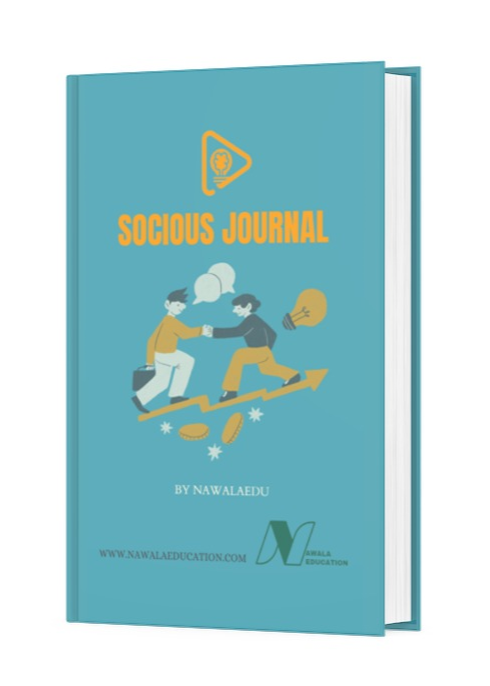Optimizing the Public Satisfaction Index (IKM) to Improve Public Service Quality: A Case Study at the Surabaya Immigration Office
DOI:
https://doi.org/10.62872/4kykxd58Keywords:
Public Satisfaction Index (IKM), Public Service Quality, Surabaya ImmigrationAbstract
Increasing public demand for quality public services has placed the Immigration Office in Surabaya under scrutiny. As a provider of administrative services, this office must optimize its performance to meet public expectations. However, maintaining reliability, efficiency, and responsiveness remains a challenge. The Public Satisfaction Index (IKM) is used as a key indicator to measure service quality. This study aims to analyze the efforts to optimize IKM in improving service quality at the Surabaya Immigration Office. The research employs a qualitative method with a case study approach, collecting data through interviews with passport applicants and public satisfaction surveys. The aspects measured include reliability, assurance, tangibles, empathy, and responsiveness. The data were analyzed to determine how each aspect affects public satisfaction and to identify areas for improvement to enhance the IKM. The study results indicate that service reliability reached 85%, but internal efficiency still needs improvement. Assurance contributed 78%, with technical issues requiring attention. Tangibles were rated at 82%, though facility modernization is necessary. Empathy received 68%, highlighting the need for improved attention from staff during peak workloads. Responsiveness was rated at 70%, with a need for increased consistency in providing personal attention. Recommendations include regular training and performance evaluations to ensure consistent service standards. The Surabaya Immigration Office should consider increasing staff or utilizing technology, such as online applications, to handle applicant surges and expedite administrative processes. Additional staffing and resource allocation improvements are essential, especially in primary service areas, to maintain responsiveness and empathy.
Downloads
References
Amanda, R., Suherman, E., & Epty Hidayaty, D. (2022). The Effect of Work Stress on Employee Performance Through Job Satisfaction at Non-TPI Class I Immigration Employees in Karawang. Jurnal Ilmiah Mandala Education (JIME), 8(4), 2656–5862. https://doi.org/10.36312/jime.v8i4.3931/htt
Bagus Gede Sarasvananda, I., Anwar, C., & Pasha, D. (2021). Analysis of Public Satisfaction Survey Using E-CRM Approach (Case Study: BP3TKI Lampung). Z.A Pagar Alam, 2(1), 1–9.
Budi Helpiastuti, S., Syaifana, I., & Rohman, H. (2023). Quality of M-Passport Services at Class I TPI Immigration Office Jember. Jurnal Ilmiah Manajemen Publik Dan Kebijakan Sosial, 1(7)
Evelyna, F. (2022). Pengaruh Servicescape, Social Media Marketing dan Customer Experience terhadap Minat Berkunjung Kembali (Revisit Intention) pada Objek Wisata Rahayu River Tubing di Kabupaten Kebumen. Jurnal Bisnis, Manajemen, Dan Akuntansi, 9(2), 203-219.
Exreana, M., & Lucky, K. (2021). The Effect of Service Quality on Consumer Satisfaction at Benteng Resort Batu Putih. Productivity, 2(6).
Firdausy, A. (2019). Quality of Service at Class I Special Immigration Office Surabaya (Descriptive Study of Service Quality in Passport Service Unit at Maspion Square). Setkab. www.setkab.go.id
Halida, H., Mufti, M. I., & Asrifai, A. (2024). Policy Evaluation Of Minimum Service Standards For Hypertension Health Services At Mabelopura Health Center. Socious Journal, 1(3), 12-22.. https://doi.org/10.62872/v4m9he76
Laricha, L., Kosasih, W., Tri, D., & Permai, R. (2019). Measurement and Analysis of Public Satisfaction Index at Jakarta Immigration Office. Jurnal Ilmiah Teknik Industri, 6(1).
Muhammad Al Zidane, Imam Baidlowi, & Agoes Hadi Purnomo. (2023). The Effect of Product Quality, Service Quality, and Company Image on Consumer Satisfaction at Dapur Keyra SMEs in Puri District, Mojokerto Regency. Lokawati: Journal of Management Research and Innovation, 1(5), 121–134. https://doi.org/10.61132/lokawati.v1i5.135
Ningtyas, T. (2019). New Public Service: Humanistic-Based Public Service for Bureaucratic Reform Success. 1–12.
Partiwi, S. (2020). Kualitas Pelayanan Perizinan Satu Pintu di Kabupaten Kebumen. Jurnal E-Bis, 4(1), 12-24.
Prasodjo, T. (2017). Humanistic Paradigm in Public Service. Jurnal Ilmiah Ilmu Administrasi Publik, 1(7), 38–45.
Sinollah, & Masruro. (2019). Measurement of Service Quality (Servqual - Parasuraman) in Creating Customer Satisfaction and Loyalty (Case Study on Mayang Collection Store, Kepanjen Branch). Jurnal Dialektika, 1(4), 45–64.
Suandi. (2019). Analysis of Public Satisfaction with Public Services Based on the Public Satisfaction Index at Belitang District Office, OKU Timur Regency. Journal of Administrative Science and Policy Studies (JIASK), 2(1), 13–22.
Yulianto, D. (2023). Customer Experience as an Alternative for Improving Public Service Quality (Case Study: Yogyakarta Immigration Office). INNOVATIVE: Journal of Social Science Research, 6(3), 4191–4205.
Downloads
Published
Issue
Section
License
Copyright (c) 2024 Amirul Mustofa, Achmad Wahyu Deby Leksono, Widyawati (Author)

This work is licensed under a Creative Commons Attribution-ShareAlike 4.0 International License.

This work is licensed under a Creative Commons Attribution-ShareAlike 4.0 International License.











